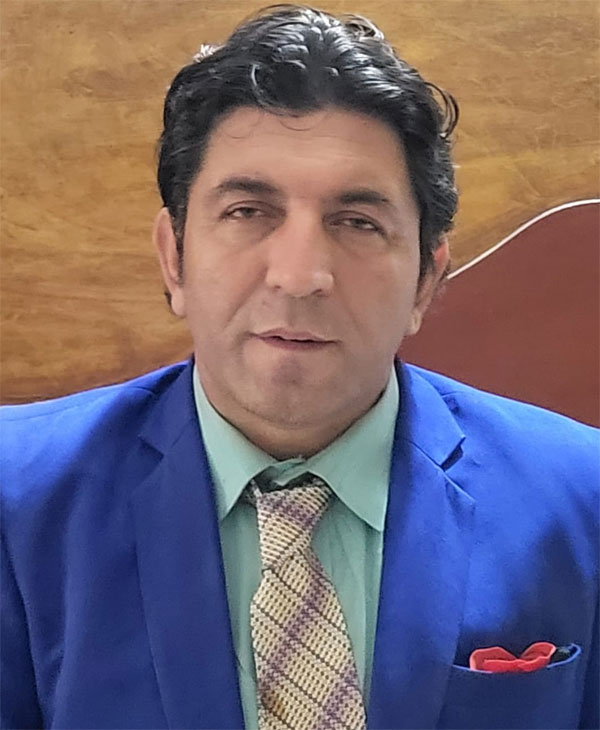Forced Conversions And Intersectionality Have A Nexus
The Universal Declaration of Human Rights (UDHR), the International Covenant on Civil and Political Rights (ICCPR), and other international human rights instruments have embodied the right to profess any religion without any restrictions imposed by the state. Pakistan has undertaken these international commitments to ensure freedom of religion within its jurisdiction and embodied the provisions within its domestic legislation. However, the reports of human rights organizations reveal different realities on the ground level.
The religious minority communities living in Pakistan are confronted with multitude of economic, social, religious and political challenges. One of the most critical challenges faced by these communities is forced conversion. This write-up will discuss the issue of forced conversion and how minor females from religious minority communities are disproportionately affected by it. It will also discuss the causes of growing cases of forced conversions and the need to enact legislative instruments to prevent forced conversions and child marriages in the country.
In today’s Pakistan, religious minorities face discrimination and prejudice in various aspects of life. Their places of worship are frequently vandalized, their religious practices are ridiculed, their members are falsely accused of blasphemy, and the entire community is threatened with grave consequences. The discrimination and exclusion of religious minorities is not limited to the upper echelons of society, but it is deeply embedded in society.
Many Muslim neighborhoods do not allow non- Muslims to buy property while others consider it haram to sit and dine with them. These social dynamics contribute to the otherization of RMCs, create an environment of fear and hence contribute to forced conversion.
Secondly, our mainstream political parties are deliberately excluding the members of religious minorities. A famous slogan of Pakistan’s self-claimed most popular political party is “Tera Mera Rishta Kia? La Ilaha Illallah”. Although, the slogan truly represents the concept of the Muslim fraternity and the belief in the oneness of Allah and the finality of Prophet Muhammad (SAAW).
But if a party claims to represent all of Pakistan and aspires for national leadership, its approach should be more inclusive. The issue is not confined to any specific political party; in fact, all political actors in Pakistan have adopted exclusionary policies to consolidate their support among Muslim-majority constituencies. Due to lack of inclusive policies, the socio-economic condition of minorities is deplorable.
Research has indicated that 85 percent of the lower caste Hindus living in Pakistan earn below the minimum wage. This data reflects the perilous socio-economic condition of RMCs, due to which they are trapped in the cycle of poverty and their situation is exploited for conversion by offering jobs and other economic benefits.
In a patriarchal society like Pakistan, women face discrimination in all aspects of life and the intersection of religion and gender disproportionally affects women from minority communities. They are generally the most vulnerable groups targeted for forcedconversions.These girls from minority communities are either provided incentives or abducted from their communities, and married to older men with pedophilic intentions, who use the cover of conversion to give legitimacy to their crime, and the minor girls are trapped in a cycle of violence.
According to a report of the Movement of Solidarity and Peace, approximately 1000 girls from religious minority communities are forcibly converted to Islam every year and the number is growing astronomically. Most of these girls are minors who are abducted from rural areas and then married to an older man. The lack of uniformity in law with regard to the legal age of marriage and the lack of legislative instruments for forced conversion makes it impossible for the victims to seek justice in the courts.
Even if the family members undertake the garrulous task, the inherent biases of the justice actors for Conversions And Intersectionality make it impossible for them to resolve the issue.
We are living in a globalized community where freedom of religion is recognized as the most fundamental aspect of human rights. As part of this civilized world, it is high time for Pakistan to take substantial measures to ensure freedom of religion within its boundaries and address the intersectionality of religious and gender identity.
The federal legislature should pass the bill for anti-forced conversion instead of succumbing to the pressure of some conservative aspects of society as it complies with the injunctions of Islam and its international commitments. The executive branch should enforce laws and protect the rights guaranteed by the constitution to the member of RMCs.
The ministry of education should review its policies and sensitize children about the existence of multiple religions. Mainstream political parties should be more representative. Similarly, as individuals, we should also play our role by educating ourselves about the diversity of religions and inculcating the values of pluralism. We cannot progress as a nation unless we accept diversity, learn to exist peacefully with diverse communities, and protect women, especially those belonging to religious minority communities.




